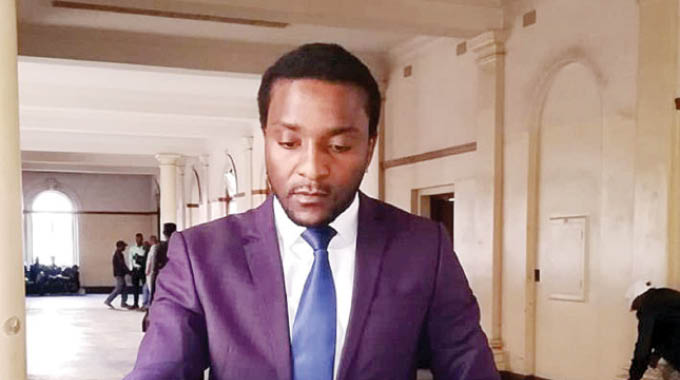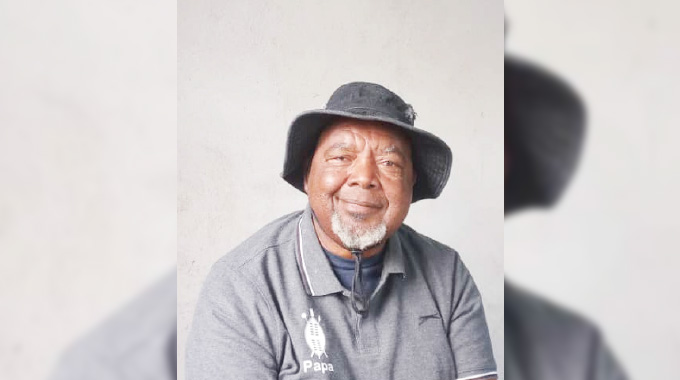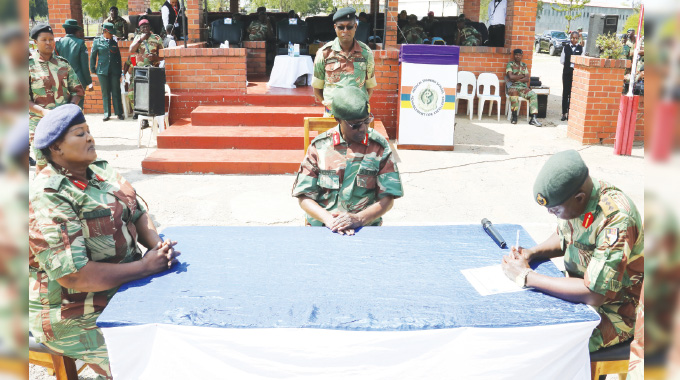Covid-19 forces Kambarami case delay

Mashudu Netsianda, Senior Court Reporter
THE Supreme Court was on Tuesday forced to postpone the hearing in which deposed Bulawayo Deputy Mayor, Tinashe Kambarami is challenging the nullification of his election by the High Court after an advocate instructed by his law firm self-quarantined himself in light of Covid-19.
Bulawayo High Court judge, Justice Thompson Mabhikwa, in September last year nullified Kambarami’s election as councillor for Ward 3 and the city’s Deputy Mayor following an application by 1893 Mthwakazi Restoration Movement Trust.
Justice Mabhikwa ruled that the election of Kambarami was in violation of section 119 (2) (e) of the Electoral Act following his theft conviction.
Kambarami was in July 2018 convicted of theft by Bulawayo provincial magistrate, Ms Sharon Rosemani, under case number CRB 1981/18.
He was fined $80 or 18 days in prison for stealing an extension cord from an electrician he had hired to work at his offices.
Supreme Court judge, Justice Paddington Garwe, sitting with Justices Lavender Makoni and Chinembiri Bhunu on circuit in Bulawayo, yesterday postponed the matter indefinitely after Advocate Sylvester Hashiti, who was instructed by Kambarami’s lawyers Samp Mlaudzi and Partners to argue the matter, failed to attend due to self-isolation.
“We had instructed Advocate (Sylvester) Hashiti to argue our case, but unfortunately he couldn’t manage to travel to Bulawayo because he has self-quarantined himself as a precautionary measure in the wake of coronavirus. He is now working from home and we therefore sought for a postponement,” said Kambarami’s lawyer, Mr Maqhawe Mpofu.
This the second time that the matter has been popostponed.
Initially it was supposed to be heard in November last year before the same advocate defaulted, but his absence was not explained at that time.
Kambarami filed a notice of appeal at the Supreme Court challenging Justice Mabhikwa’s judgment.
In papers before the court, Kambarami cited 1893 Mthwakazi Restoration Movement Trust, its representative, Ms Nomalanga Ngwenya, the Bulawayo City Council, the Zimbabwe Electoral Commission (Zec) and MDC Alliance, as respondents.
In his grounds of appeal, Kambarami said the lower court erred by failing to note that it had no jurisdiction to hear and determine the matter on the basis that it was not an election petition filed under section 168 of the Electoral Act.
He argued that the High Court erred by failing to hold that the second respondent (Ms Nomalanga Ngwenya) did not have a locus standi to approach the court including her organisation.
“The court a quo erred in its interpretation of Section 119 (2) of the Electoral Act. Most importantly, the court a quo failed in not holding that once a person had been lawfully nominated such as the appellant in this case, he could only be removed from office in terms of Section 278 of the Constitution of Zimbabwe,” argued Kambarami’s lawyers.
“The appellant prays that this appeal succeeds with costs and that the court a quo’s judgment under case number EC8/18 be and hereby set aside and dismissed with costs.”
In nullifying Kambarami’s election, Justice Mabhikwa said his failure to notify his party and Zec was in itself an act of dishonesty and an illegality which rendered his subsequent election a nullity and therefore unsuitable to hold public office.
According to section 119 (2) (e) of the Electoral Act, a person shall be disqualified from being nominated as a candidate for or from election as a councillor if he or she has been convicted of an offence involving dishonesty.
Kambarami was convicted on his own plea of guilty to theft.
He was given a chance to voluntarily relinquish his posts as councillor and Deputy Mayor and he declined, prompting 1893 Mthwakazi Restoration Movement Trust to approach the High Court. Section 41 (7) of the Urban Councils Act states that a councillor who is convicted of an offence and sentenced to imprisonment for a period of six months or more shall forthwith cease to exercise his or her functions or to be entitled to any remuneration as a councillor, and subject to subsection (8), he or she shall cease to be a counselor at the expiry of 30 days from the date of such sentence.
On August 1, 2017, Kambarami engaged the complainant, Mr Washington Chirikuudzi (68), to do some work at his offices.
Kambarami asked the complainant to leave his tools at his offices inside a safe before knocking off. When the complainant returned on the following morning, he discovered that his extension cord was missing. Kambarami admitted that he took it and promised to return it.
However, Kambarami did not return the cable despite pleas from the complainant.
Mr Chirikuudzi reported the matter to the police leading to Kambarami’s arrest. Kambarami was elected Deputy Mayor in September 2018 after beating his closest rival, Clr Mlandu Ncube of Ward One.
@mashnets










Comments